Related Research Articles
Description logics (DL) are a family of formal knowledge representation languages. Many DLs are more expressive than propositional logic but less expressive than first-order logic. In contrast to the latter, the core reasoning problems for DLs are (usually) decidable, and efficient decision procedures have been designed and implemented for these problems. There are general, spatial, temporal, spatiotemporal, and fuzzy description logics, and each description logic features a different balance between expressive power and reasoning complexity by supporting different sets of mathematical constructors.
The Web Ontology Language (OWL) is a family of knowledge representation languages for authoring ontologies. Ontologies are a formal way to describe taxonomies and classification networks, essentially defining the structure of knowledge for various domains: the nouns representing classes of objects and the verbs representing relations between the objects.
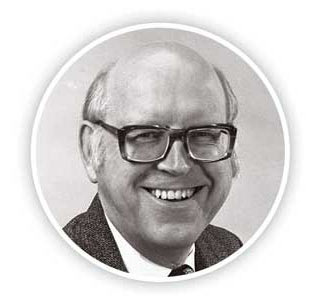
Allen Newell was an American researcher in computer science and cognitive psychology at the RAND Corporation and at Carnegie Mellon University's School of Computer Science, Tepper School of Business, and Department of Psychology. He contributed to the Information Processing Language (1956) and two of the earliest AI programs, the Logic Theorist (1956) and the General Problem Solver (1957). He was awarded the ACM's A.M. Turing Award along with Herbert A. Simon in 1975 for their contributions to artificial intelligence and the psychology of human cognition.

Judea Pearl is an Israeli-American computer scientist and philosopher, best known for championing the probabilistic approach to artificial intelligence and the development of Bayesian networks. He is also credited for developing a theory of causal and counterfactual inference based on structural models. In 2011, the Association for Computing Machinery (ACM) awarded Pearl with the Turing Award, the highest distinction in computer science, "for fundamental contributions to artificial intelligence through the development of a calculus for probabilistic and causal reasoning". He is the author of several books, including the technical Causality: Models, Reasoning and Inference, and The Book of Why, a book on causality aimed at the general public.
Peter Pin-Shan Chen is a Taiwanese American computer scientist. He is a (retired) distinguished career scientist and faculty member at Carnegie Mellon University and Distinguished Chair Professor Emeritus at LSU. He is known for the development of the entity–relationship model in 1976.
Patrick John Hayes FAAAI is a British computer scientist who lives and works in the United States. As of March 2006, he is a senior research scientist at the Institute for Human and Machine Cognition in Pensacola, Florida.

Deborah Louise McGuinness is an American computer scientist and researcher at Rensselaer Polytechnic Institute (RPI). She is a professor of Computer, Cognitive and Web Sciences, Industrial and Systems Engineering, and an endowed chair in the Tetherless World Constellation, a multidisciplinary research institution within RPI that focuses on the study of theories, methods and applications of the World Wide Web. Her fields of expertise include interdisciplinary data integration, artificial intelligence, specifically in knowledge representation and reasoning, description logics, the semantic web, explanation, and trust.
Vasant G. Honavar is an Indian-American computer scientist, and artificial intelligence, machine learning, big data, data science, causal inference, knowledge representation, bioinformatics and health informatics researcher and professor.
Hector Joseph Levesque is a Canadian academic and researcher in artificial intelligence. His research concerns incorporating commonsense reasoning in intelligent systems and he initiated the Winograd Schemas Challenge.

John F. Canny is an Australian computer scientist, and Paul E Jacobs and Stacy Jacobs Distinguished Professor of Engineering in the Computer Science Department of the University of California, Berkeley. He has made significant contributions in various areas of computer science and mathematics, including artificial intelligence, robotics, computer graphics, human-computer interaction, computer security, computational algebra, and computational geometry.
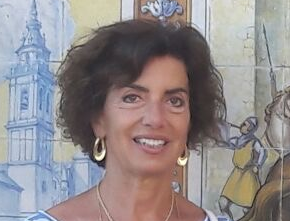
Paola Velardi is a full professor of computer science at Sapienza University in Rome, Italy. Her research encompasses Artificial Intelligence and specifically, natural language processing, machine learning business intelligence and semantic web. Velardi is one of the hundred female scientists included in the database "100esperte.it". This online, open database champions the recognition of top-rated female scientists in Science, Technology, Engineering and Mathematics (STEM) areas.
Natasha Fridman Noy is a Russian-born American Research scientist who works at Google Research in Mountain View, CA, who focuses on making structured data more accessible and usable. She is the team leader for Dataset Search, a web-based search engine for all datasets. Natasha worked at Stanford Center for Biomedical Informatics Research before joining Google, where she made significant contributions to ontology building and alignment, as well as collaborative ontology engineering. Natasha is on the Editorial Boards of many Semantic Web and Information Systems publications and is the Immediate Past President of the Semantic Web Science Association. From 2011 to 2017, she was the president of the Semantic Web Science Association.
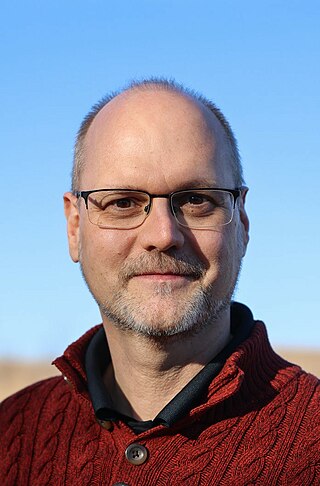
Pascal Hitzler is a German American computer scientist specializing in Semantic Web and Artificial Intelligence. He is endowed Lloyd T. Smith Creativity in Engineering Chair, one of the Directors of the Institute for Digital Agriculture and Advanced Analytics (ID3A) and Director of the Center for Artificial Intelligence and Data Science (CAIDS) at Kansas State University, and the founding Editor-in-Chief of the Semantic Web journal and the IOS Press book series Studies on the Semantic Web.
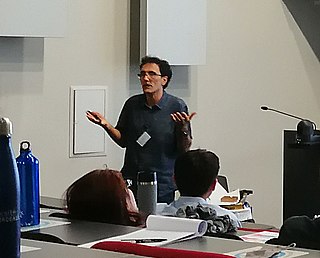
Diego Calvanese is an Italian computer scientist and professor at the faculty of computer science at the Free University of Bozen-Bolzano. In addition, since 2019, he is Wallenberg Visiting Professor at the department of computing science, Umeå University. He is well known for his scientific contributions in knowledge representation and reasoning in AI, description logics, and database theory.
Michael Genesereth is an American logician and computer scientist, who is most known for his work on computational logic and applications of that work in enterprise management, computational law, and general game playing. Genesereth is professor in the Computer Science Department at Stanford University and a professor by courtesy in the Stanford Law School. His 1987 textbook on Logical Foundations of Artificial Intelligence remains one of the key references on symbolic artificial intelligence. He is the author of the influential Game Description Language (GDL) and Knowledge Interchange Format (KIF), the latter of which led to the ISO Common Logic standard.
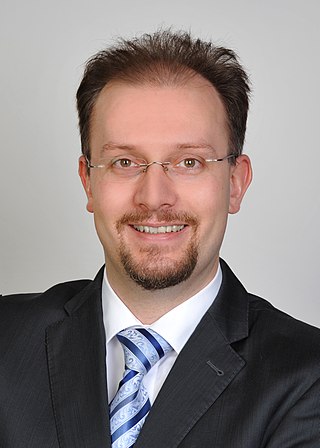
Jens Lehmann is a computer scientist, who works with knowledge graphs and artificial intelligence. He is a principal scientist at Amazon, an honorary professor at TU Dresden and a fellow of European Laboratory for Learning and Intelligent Systems. Formerly, he was a full professor at the University of Bonn, Germany and lead scientist for Conversational AI and Knowledge Graphs at Fraunhofer IAIS.

Nicola Leone is an Italian computer scientist who works in the areas of artificial intelligence, knowledge representation and reasoning, and database theory. Leone is currently the rector of the University of Calabria and a professor of Computer Science. Previously, he was a professor of Database Systems at the TU Wien.
Luigia (Gigina) Carlucci Aiello is an Italian computer scientist, emeritus professor of artificial intelligence at Sapienza University of Rome.
In database theory and knowledge representation, the one of the certain answers is the set of answers to a given query consisting of the intersection of all the complete databases that are consistent with a given knowledge base. The notion of certain answer, investigated in database theory since the 1970s, is indeed defined in the context of open world assumption, where the given knowledge base is assumed to be incomplete.
Giuseppe De Giacomo is an Italian computer scientist. He is a Professor of Computer Science at the Department of Computer Science, University of Oxford, and Professor of Computer Engineering at the Department of Computer, Control and Management Engineering, Sapienza University of Rome. He is also a Senior Research Fellow at the Green Templeton College.
References
- ↑ "Maurizio Lenzerini". On the Move Conferences. September 11, 2012. Archived from the original on December 25, 2013. Retrieved December 24, 2013.
- ↑ ""DL-Lite: Tractable Description Logics for Ontologies" riceve il premio AAAI 2021 Classic Paper Award" (in Italian). Sapienza University of Rome - Department of Computer, Control and Management Engineering. Retrieved March 2, 2021.
- ↑ "Premio AAAI 2021 a ricerca italiana con Unibz" (in Italian). ANSA. February 5, 2021. Retrieved March 2, 2021.